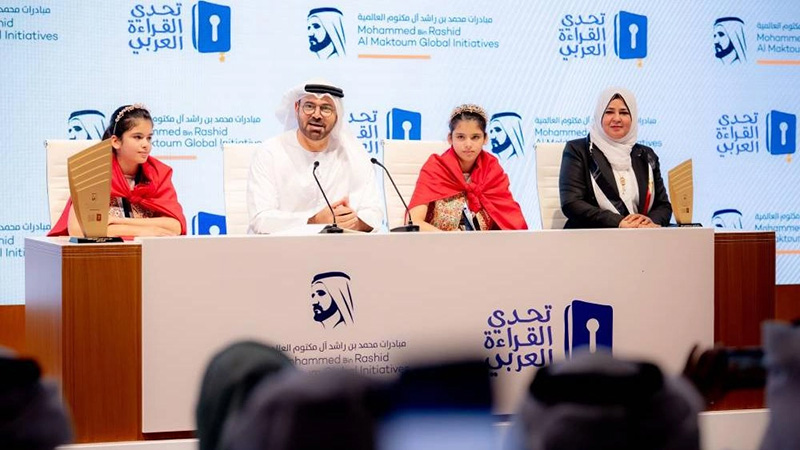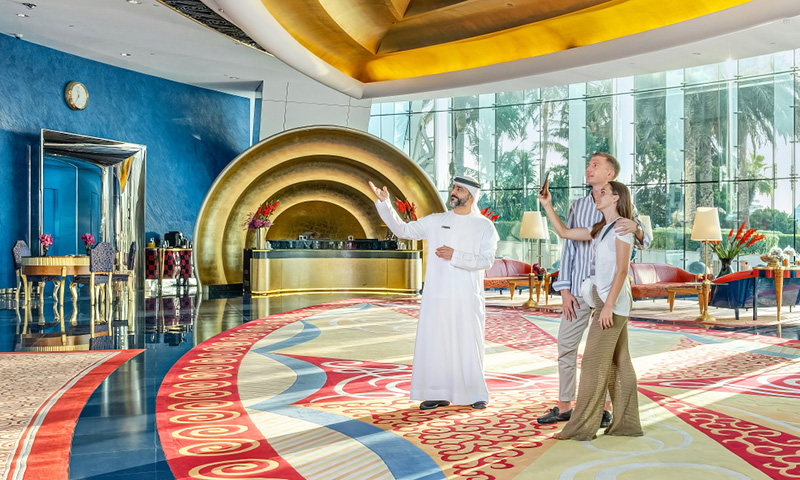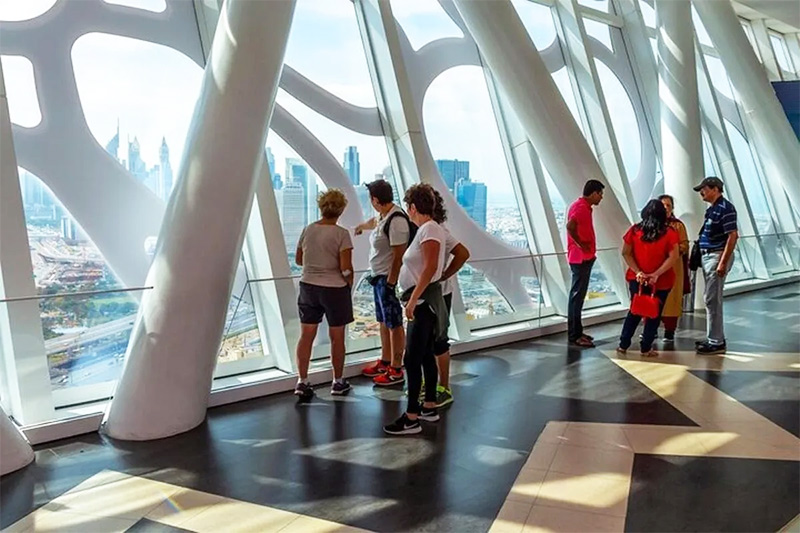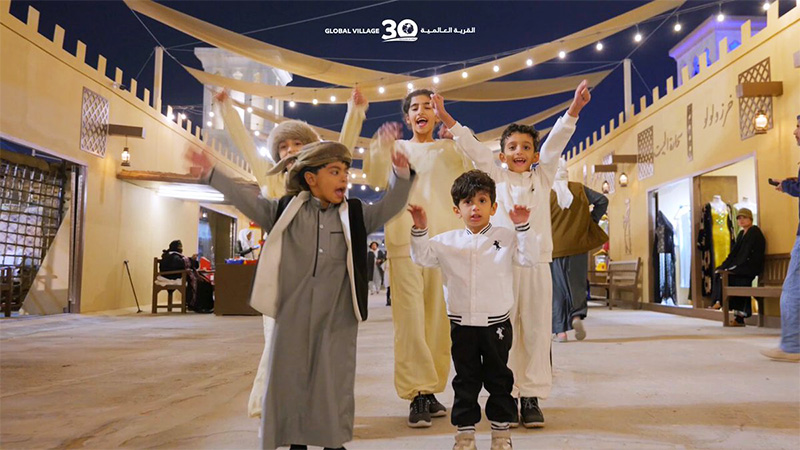
His Excellency Mohammad bin Abdullah Al Gergawi, Secretary-General of the Mohammed bin Rashid Al Maktoum Global Initiatives, affirmed that the vision of His Highness Sheikh Mohammed bin Rashid Al Maktoum, Vice President, Prime Minister of the UAE and Ruler of Dubai, along with his unwavering support for the Arab Reading Challenge over the past ten years, has cemented the initiative’s place as a powerful and inspiring Arab knowledge platform. It has become a driving force in nurturing a passion for reading and love for the Arabic language among the younger generations — a reflection of Sheikh Mohammed’s belief that a reading Arab generation is an aware, empowered generation capable of building a better future.
Mohammad Gergawi made these remarks during a press conference held at the Dubai World Trade Centre following the announcement of the 2025 Arab Reading Challenge winners. He highlighted the initiative’s major achievements and its significant influence on the Arab educational and cultural landscape, as well as its role in elevating the status of the Arabic language.
Joining the conference were the winning twin sisters from Tunisia, Bissan and Bilsan Kouka, along with Sahar Mesbah from Egypt, who was named Outstanding Supervisor.
Record-Breaking Success
Mohammad Gergawi recalled that in October 2015, Sheikh Mohammed launched the Arab Reading Challenge at a time when reading rates in the Arab world were among the lowest globally — with an average of just six minutes of reading per year. Today, the challenge has played a major role in increasing students’ reading time outside the classroom from less than an hour per week to over four hours, amounting to roughly 200 hours of reading annually.
He emphasized that the challenge’s remarkable success across its nine editions confirms its strong presence across the Arab world and the deep connection students have developed with it. Many now strive to win the title as a defining moment in their academic journey and a step toward achieving their educational and professional goals.
Mohammad Gergawi also pointed to the wide recognition the initiative has gained from official institutions, local communities, educational entities across the Arab world, and even international bodies like the United Nations. A comprehensive study conducted in partnership with UNESCO measured the Arab Reading Challenge’s impact since its launch.
Deep and Lasting Impact
According to the study, the challenge has profoundly changed students’ reading habits and the overall cultural scene in the Arab world. Students now show greater interest in self-learning both before and after participating in the challenge.
The average number of books read by each student annually increased from around 8 before joining the challenge to over 40 after participating. The study focused on four core areas: changes in reading habits, contributions to the UN’s Sustainable Development Goals, the social and cultural effects of the challenge, and strategic recommendations for integrating the challenge into national education systems.
Remarkable Growth in Reading Culture
The findings revealed that over 80% of participating students now read regularly each week. A large portion also engage in related activities such as summarizing stories, writing articles, and sharing reflections. Furthermore, 70% reported easier access to printed and digital books.
The percentage of students reading more than 50 books per year rose by 147%, while daily or near-daily reading increased by 122%. The time dedicated to reading for more than an hour weekly grew by 157%. Additionally, 48% of students began borrowing books from libraries, 41% purchased new books, and 30% joined reading clubs.
Clear Improvements in Language Skills and Cultural Pride
The study also showed significant improvements in Arabic language skills, including reading comprehension, vocabulary, writing, and overall style. Importantly, 71% of students said they felt a stronger connection to their culture and a greater sense of pride in the Arabic language after participating in the challenge.
Students’ reading interests also expanded, with literature, science, history, and self-development emerging as the most read genres — demonstrating the growing intellectual curiosity among young readers.
While digital platforms and e-books are seeing increased use, traditional paper books remain popular. Teachers were found to be the primary motivators for students to read, followed by parents and friends.









